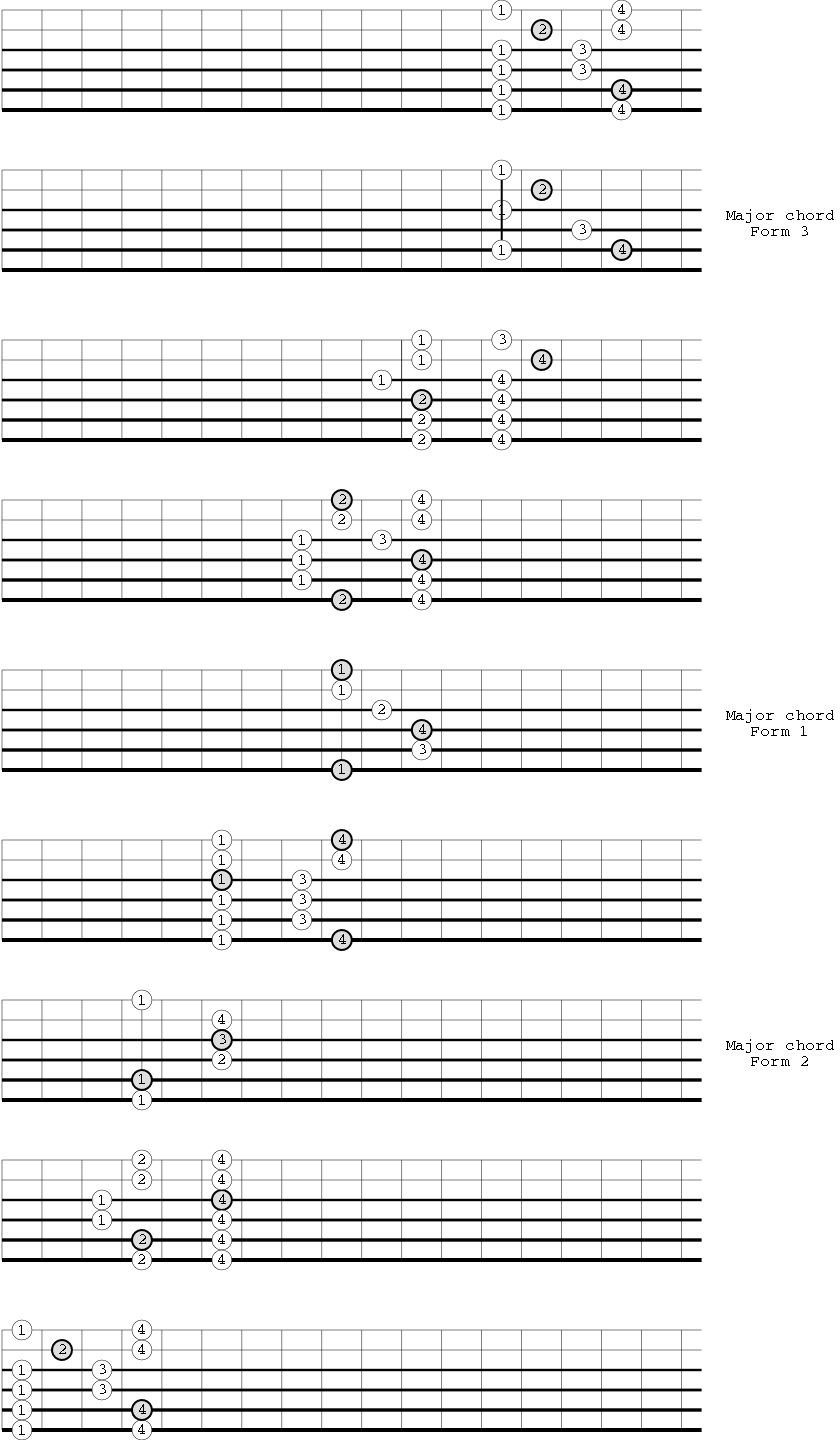


Previous Index Next
Major Pentatonic Scales
Pentatonic Scales
Pentatonic scales are "partial" scales, using just five (hence the name
pentatonic) of the seven notes in the scale. A pentatonic scale uses
the root, 3rd, 4th, 5th, and 7th notes of the scale. These notes form a
sort of "backbone" for the full scale, and are often the notes
emphasized in blues and rock solos.
Pentatonic Scales and Fundamental Chord Forms
Since the
pentatonic scales use 5 notes and the fundamental chords use 3 notes of
the scale, the pentatonic scales amount to "augmented" chords - they
use the notes of the chords, and add a couple of additional ones. Of
course, the notes of the chords are meant to be played at the same
time, while the notes of the scales are played individually for solos
and leads. But the notes of the chord forms can be found within the
scales, and can be used to "reference" the scales on the fretboard. The
scales below are shown next to the chord forms that are "embedded"
within them.
Playing notes from the scales in this way is sometimes called "position
playing": the scale is located at one position on the fretboard, and
the notes of the scale can be played without moving the left hand from
this position.
The "root" notes of the scale are shaded in the diagrams; the location of the root note determines the key of the scale.
Major Pentatonic Scales
<----
peghead
body ---->
Comments/questions: jsevy@cs.drexel.edu




